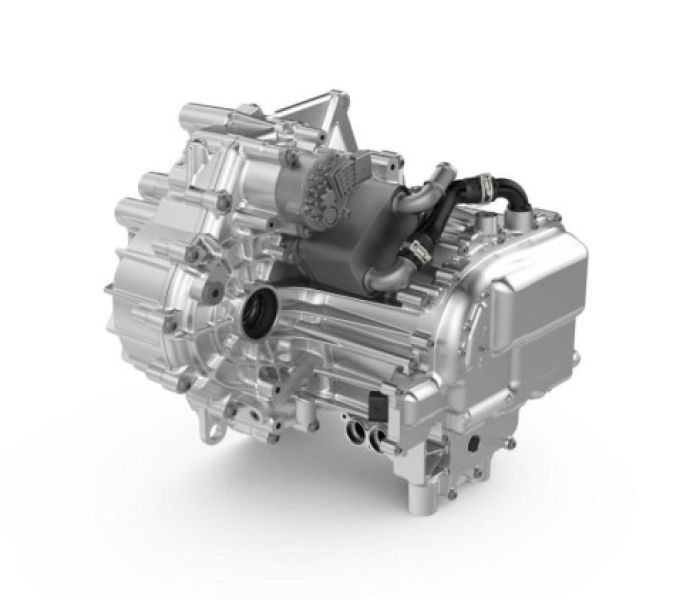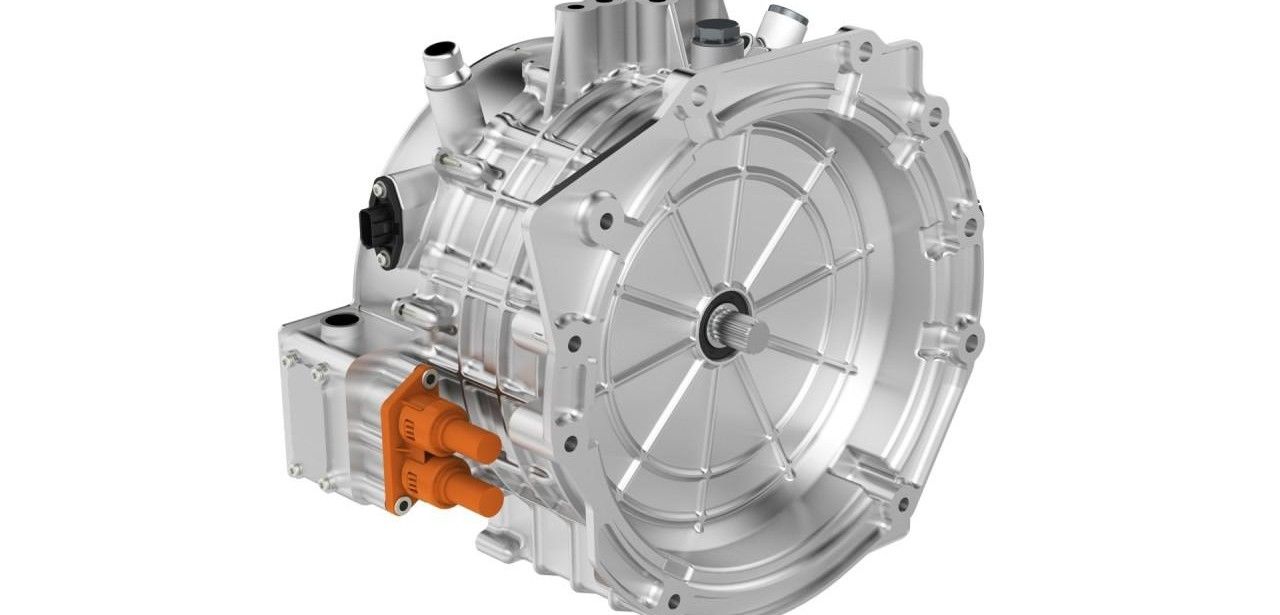ZF, an automotive supplier, is focusing on advancing range-extender systems for electric vehicles. This technology has the potential to make electrified mobility more appealing to a wider range of consumers by offering increased range and reduced emissions. ZF’s upcoming range extenders, set to be produced in 2026, have been specifically optimized to meet the ever-changing demands of the market and customers, as well as accommodate various flexible drivetrain configurations.
Table of Contents: What awaits you in this article
ZF develops next-gen Range Extender technology for electric vehicles

System electric Range Extender plus (Foto: ZF Group)
Range extenders are a promising solution to address the range anxiety that potential buyers of electric vehicles often experience. By combining a combustion engine generator with an electric motor, these systems can generate energy to extend the vehicle’s range. ZF is introducing a new generation of range extenders in 2026, designed to meet the increasing global demand and adapt to dynamic market and customer requirements. This development aims to make electrified mobility more attractive to a wide range of customers.
Range Extender Technology: Benefits for Automotive Manufacturers
The development of Range Extenders provides significant advantages for automotive manufacturers. By utilizing this technology, shorter development cycles and reduced costs can be achieved as it is based on an existing BEV platform. In comparison to plug-in hybrids or conventional combustion engines, the motor of the Range Extender consistently operates in the most fuel-efficient power range, resulting in lower fuel consumption and reduced CO2 emissions.
ZF is a leading provider of Range-Extender technology for electric vehicles. Their latest generation of Range Extenders, the electric Range Extender (eRE) and electric Range Extender plus (eRE+), offer a highly integrated design with flexible performance, electronics, voltage, and semiconductor options. The eRE features an integrated inverter, software, and planetary gear system, while the eRE+ adds an intelligent clutch and differential for use as a secondary drive or power generator. Both models can be individually tailored with power outputs ranging from 70 to 110 kW for the eRE and 70 to 150 kW for the eRE+.
Range Extenders: Cost-effective and Efficient Alternative to Plug-in Hybrids
Range Extenders offer significant advantages over parallel hybrid solutions like plug-in hybrids. They come with lower additional costs, shorter development times, and simplified supply chain management. These benefits make the technology particularly attractive to manufacturers who are new to the market and have limited experience with traditional combustion engines. In China, where there is a wide range of battery-electric platforms, there is a strong interest in Range Extenders. The same trend can be observed in the USA and Europe, where manufacturers are increasingly recognizing the benefits of this technology.
ZF’s Enhanced Range Extender Systems: Advantages for Electromobility
The advancement of Range Extender systems by ZF presents numerous advantages for electromobility. By increasing the vehicle’s range and reducing emissions, electric vehicles become more appealing to a wide range of consumers. This technology allows for shorter development cycles and lower costs for automakers, while also meeting the demands of dynamic markets and customers. Range Extenders provide a genuine alternative to larger batteries or plug-in hybrids, offering numerous benefits to both drivers and manufacturers.














